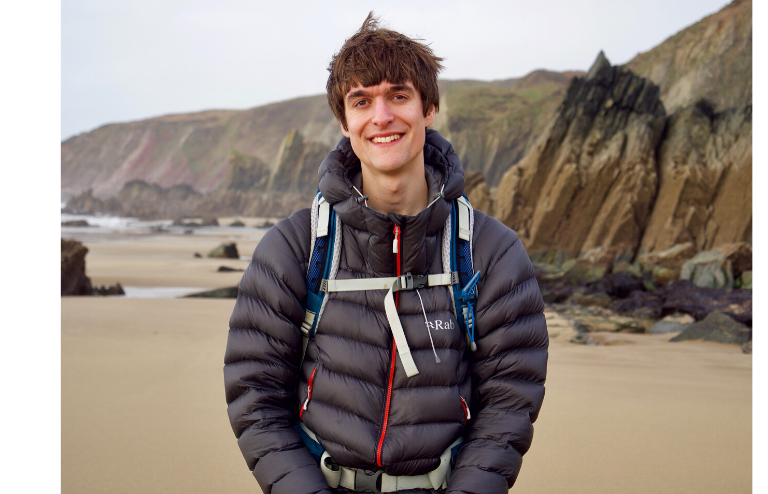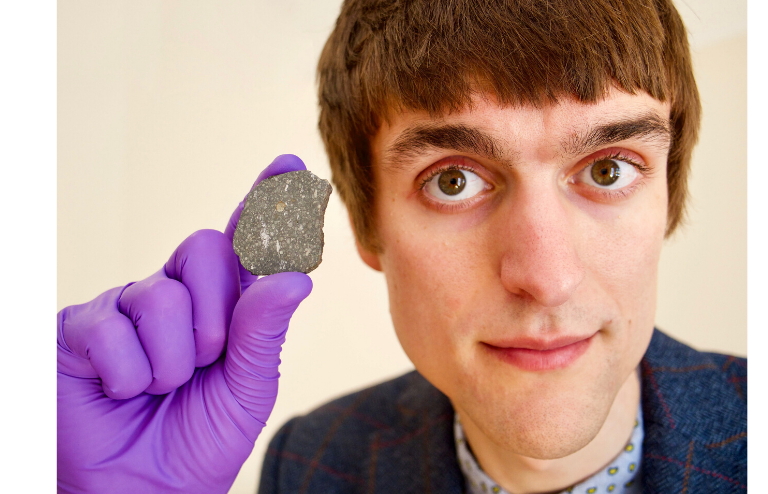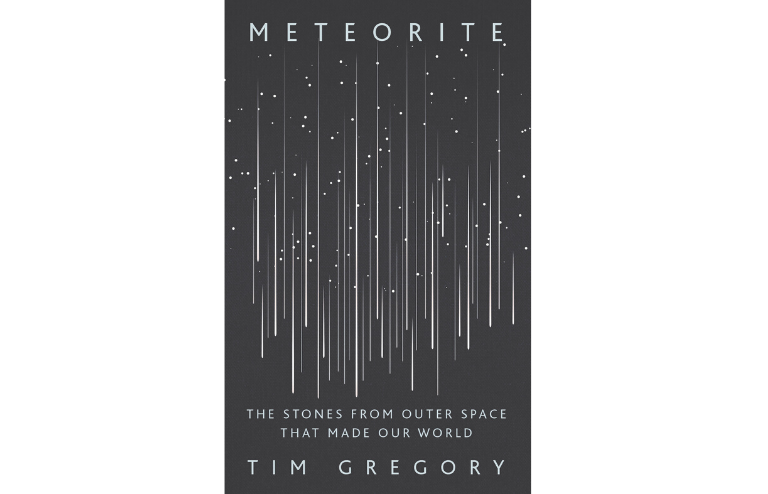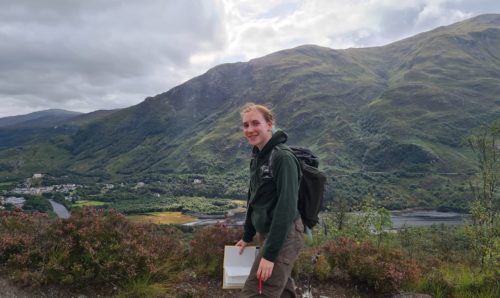Meet our alumni: an interview with Tim Gregory
The next step 6th July 2020
Tim Gregory studied the MEarthSci in Geology with Planetary Science at the University of Manchester before completing a PhD at the University of Bristol. Tim now works for the British Geological Survey as a postdoctoral researcher in cosmochemistry. I spoke to Tim about his previous studies, his work sharing science in the media and his new book: Meteorite.

What A levels did you study?
I studied chemistry, physics, maths, and geology (I dropped chemistry after the first year, though!). I think I struggled with maths the most: I went to after-school maths classes for two years, and it all paid off because I ended up getting an A.
Which degree programme did you study at Manchester, and at what level? Did you go on to study elsewhere subsequently?
For my undergraduate degree I studied Geology with Planetary Science (4-year MEarthSci). It combined two of my biggest interests in life: rocks and space! I took a particular interest in meteorites and lab work, thanks to my fourth year project which I did on a meteorite, and ended up doing a PhD at the University of Bristol in cosmochemistry after I graduated. My time in Manchester perfectly prepared me for life as a PhD student!
What is your current job title, and what does your work involve?
I finished my PhD last year, and right now I am a postdoc carrying on my academic research into the early Solar System at the British Geological Survey in Nottingham, using meteorites. I spend most of my working day in a clean laboratory (lab coat, shoe coverings, and hairnet included!), and spend the rest of the time writing papers.

How did your studies prepare you for your current role as a postdoctoral research scientist at the British Geological Survey in Nottingham? Is this a career you had wanted to pursue for a long time, or is it something you discovered whilst studying?
My time in Manchester prepared me perfectly for my PhD, and my PhD prepared me perfectly for my current job. Even now, five years since I graduated from Manchester, I use analytical techniques I learned as an undergraduate student.
I knew that I wanted to do a PhD after completing an internship at NASA’s Johnson Space Center at the end of my third year. My lecturers and tutors really helped me piece together my application, and the specialist lecture modules I had completed in the previous years really boosted my application.
One of the best things about my time as an undergraduate was that I got to publish my Masters project in a peer reviewed journal! I was incredibly fortunate that my supervisor — Katie Joy — supported me through the publication process. Not many undergraduates get to publish their projects, and I still feel really lucky.
I haven’t lost the bug for research, which is why I am now doing a postdoc!
Readers may have seen you on BBC2’s Astronauts and BBC4’s The Sky at Night – how did these opportunities come about?
I was really fortunate that during my PhD I was part of a BBC2 documentary series called Astronauts: Do You Have What It Takes?, and since then I have done a bit of presenting on The Sky At Night and BBC Bitesize. It was my time in academia and my hobbies (hiking, mountaineering) that landed me a place on Astronauts, and it was the relationship I built with the BBC that led onto my other TV gigs. Sharing science is one of my favourite things about being a scientist.

Your book – Meteorite – has just been published! Can you tell me more about the book – who is it aimed at and what inspired you to write it? Does it draw upon any of the research you did at Manchester?
Yes that’s right! I wrote this book for anybody who has an interest in meteorites, space, or geology. You don’t need any prior knowledge to understand and enjoy the book — I wrote it to be accessible to everybody. There is also a little bit about the history of meteorites, too, which is as interesting as the science.
My book is really a synthesis of everything I have learned in the last five years — from my undergraduate at the University of Manchester, to my PhD at the University of Bristol, to my work as a postdoc now with the British Geological Survey — and also includes some of my own research and experiences as a cosmochemist.
It is a subject very close to my heart. This is my first book – I am so excited to share it with the world.

Meteorite: The Stones From Outer Space That Made Our World
What is the impact of your work?
Through my work, we have a slightly better understanding of how our Solar System formed 4.6-billion-years ago, and me and my colleagues have developed new ways of measuring things in the lab.
My journey in academia so far all began in Manchester. 🙂
You can find our more about Tim’s work on his website and you can also follow him on Twitter.
Interview by Jemma Stewart.
astronautsBritish Geological SurveycosmochemistryGeologymeteoriteNASAplanetary sciencesolar systemspacethe sky at night




Leave a Reply